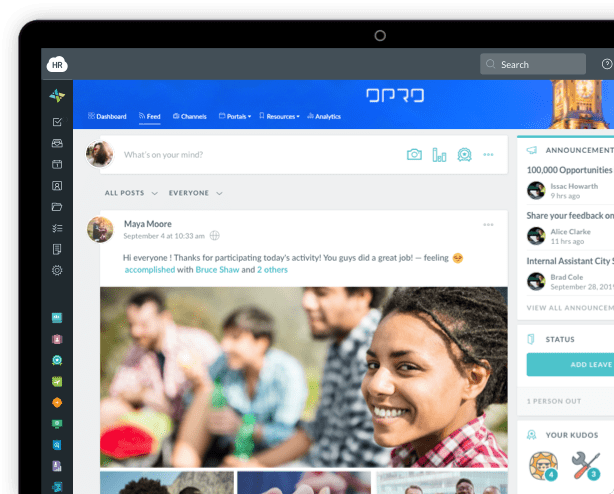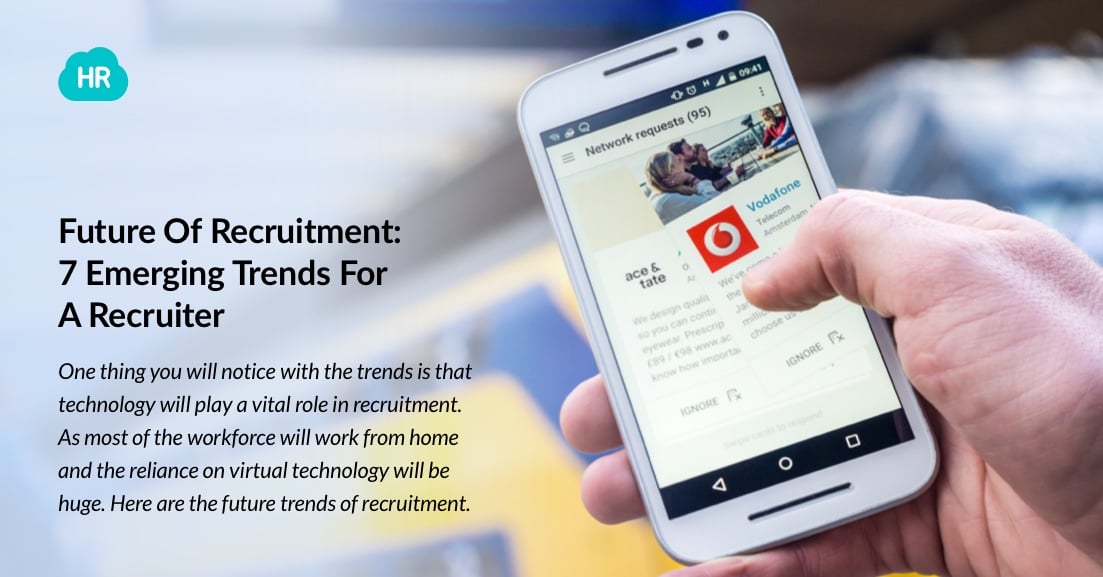Recruiting trends change over time. The expectations of the companies, HR recruiters, and candidates are changing, meaning one needs to adapt as soon as possible. The game is abofut which recruiter can act fast and get the star candidate for their company.
Now, the traditional recruitment methods are the ones that are getting outdated, and recruiters are trying new hiring trends from chatbots to the use of AI, the possibilities are endless. The recruiters are tired of handling a lot of paperwork (because of the resumes). The future of recruitment looks bright and way seamless. And the trends it has in store will help recruiters to make a decision.
Recruitment trends apt for future
One thing you will notice with the trends is that technology will play a vital role in recruitment. As most of the workforce will work from home and the reliance on virtual technology will be huge. Here are the future trends of recruitment:

Does Your Work Style Align With Your Zodiac Sign?
Take our workplace Zodiac quiz to find out!
#1. Predictive analysis
Predictive analysis allows the companies to assess, anticipate and know the candidate behaviors on actual data. Most companies have an enormous amount of data on their employees. They can correlate these dimensions to determine the profile of the candidate. It is how predictive analysis can help a company to find its star candidate.
Some more reasons making predictive analysis a trend to look out for future:
Hiring that is more targeted and faster
The use of predictive analytics in the recruitment process allows the recruiter to identify the best-fit candidates. Recruiters can now cut through the clutter quickly, recognize the "high potentials", and connect with the best candidates before the competition can engage them.
Sourcing that is smart and effective
For recruiters, sourcing is a pain point that can take a long time. HR departments can use predictive analytics to improve their hiring strategies by eliminating ineffective or inefficient sources. The same models can also be used to assess job boards, third-party recruiting firms, and in-house recruiters, among other sources.
Improved candidate experience
Because candidate evaluation is objective rather than subjective, it is more transparent. Because it is free of unconscious bias, the algorithm is entirely devoted to diversity and inclusion.
Because candidates are informed early where they stand, the candidate experience is smoother and more enjoyable. Finally, all job candidates want to know that they are moving into a job and culture that is a good fit for them; the data gives them that information, allowing them to make the best career decision possible.

#2. Gamification in recruitment
The following characteristics of gamification in HR are game algorithm, structure, and feasibility to keep employees actively engaged within their company. Gamification isn't just about games; it can also include tests, assignments, puzzle-solving, and a variety of other activities that are carried out creatively through the use of digital media.
The recruiters tend to know more about the candidate at both personal and professional levels. Gamification gets integrated into the conventional hiring processes.
Gamification has its advantages as it appeals to the tech-savvy generation, obtains real insights into candidates, and helps to build awareness.
#3. Chatbots - future of recruitment
The job of a recruiter is tough, they have applicants, filtering them out is a time-consuming process. It is the reason why the cost of hiring a candidate is increasing day by day. The solution is implementing chatbots. It allows us to automate and simplify the HR process. Here are some reasons how it is effective for both the candidates and employers:
Improves the candidate experience.
The interview chatbots help the candidates to fill the form while applying for the interview. There are many instances when the job seeker leaves the job application midway because of the length or complexity. With the presence of chatbots, the candidates can look up if they are stuck at any point.
Chatbots accelerate the hiring process.
The traditional hiring process takes longer than gets reduced to weeks by using chatbots. It saves the precious time of the recruiter.
#4. AI/VR taking recruitment to the next level
Artificial intelligence is reforming the recruitment industry. More and more companies are discovering the power of AI as it can make the recruitment process efficient. The recruitment process will look different in the future when implementing AI/VR trends.
How AI helps in video interviewing?
Video interviewing is quickly becoming a popular form of communication. Pre-recorded screening questions, as well as live one-on-one or panel interviews, are conducted using interviewing platforms.
Cost savings get realized, and time-to-hire gets reduced. It is more than just convenient for everyone involved. Rather than waiting for a department head to return to your time zone, businesses use video to conduct interviews from any location at any time.
AI has the potential to take video interviewing to the next level. Candidate personality traits get assessed in new versions. AI can help recruitment operations assess confidence, skill, and focus by examine facial expressions, gestures, and even voice.
VR for recruiting
Previously thought to be limited to gaming applications, virtual reality has made its way into the business world. Virtual reality is now getting used to training employees on everything from safety and procedures to soft skills. It's a great way to get employees ready for the challenges they'll face. VR could be a tool for attracting talent for recruiters. You can give job seekers a virtual tour of your facility by using virtual reality headsets.
#5. Rise of social recruiting
Recruiting with LinkedIn is now a thing of the past. Recruiters are broadening their scope and working on Facebook, Twitter, Instagram, and other social media platforms. It helps find high-quality candidates and tries to appeal to and market to them.
While phone and email remain the most effective recruiting tools, younger generations are increasingly turning to social media. Instagram's popularity as a recruiting tool continues to rise, with 37% of recruiters using it today, up from 18% in 2017.
#6. Expansive hiring criteria
It is important more than ever to assess the relevant skills to hire a better candidate. One can do with psychometric tests and with the focus on soft skills that the candidates will bring to the company.
The soft-skills are necessary for a candidate and in the future, they will play an important role and will be non-negotiable. E-commerce outsourcing companies are smart enough to not only hire candidates based on the industry standards. They are looking for candidates who not only possess knowledge of e-commerce capabilities but are also eager to learn and grow with the company. Here are some of the soft skills that employers are looking for in a candidate:
Communication
Adaptability
Critical observation
Problem-solving
Teamwork

#7. Candidate experience is going to be key
The candidate’s experience of the organization starts from the interview process only. So, the companies focus more on the seamless process of interview process. It means the recruiter needs to provide the necessary feedback even if they got selected or not. It shows the candidate that the E-commerce company is going the extra mile. A negative interaction can have a lasting impression on your company when a candidate spreads the word online. It is likely to grow in trend, especially when geographically present candidates explore positions in your company.
Summary
Businesses are finding ways to adapt as the world gets shaped by ever-changing global events. HR is also changing the way people work. Recruitment is changing at breakneck speed, from hiring someone virtually to broadening your view of your potential labor pool.
Rather than taking center stage, these five trends show technology playing a supporting role behind the scenes. Recruiters' tools are becoming more sophisticated, but the end goal remains the same: to attract the best candidates for the job.
Author Bio: Ginni Agarwal is a Talent Acquisition Expert at Upright Human Capital with extensive experience in Tech and Non-tech hiring. She loves blogging, writing articles about Talent Acquisition, and Human resources. She has been associated with the Talent Industry for a while. She enjoys sharing her experience with others.
Keep Reading
Importance of Onboarding: Purpose, Benefits, and What It Means for Your Workplace
Think about the last time you joined a new team. You had questions, maybe even doubts.
The Most Common Hiring Mistakes in the Healthcare Industry
The hiring process can be tedious in the healthcare industry, and it may be tempting to

